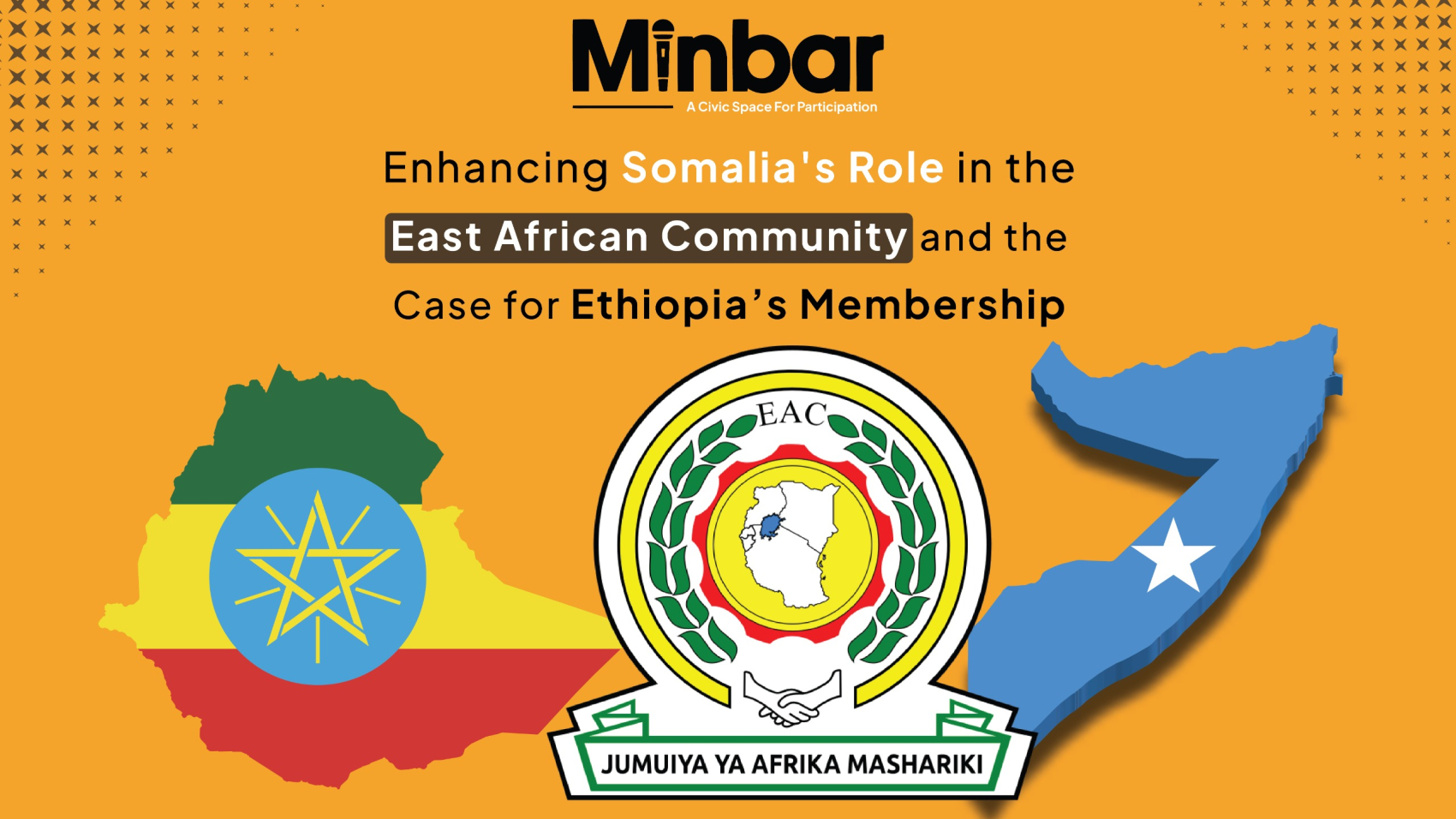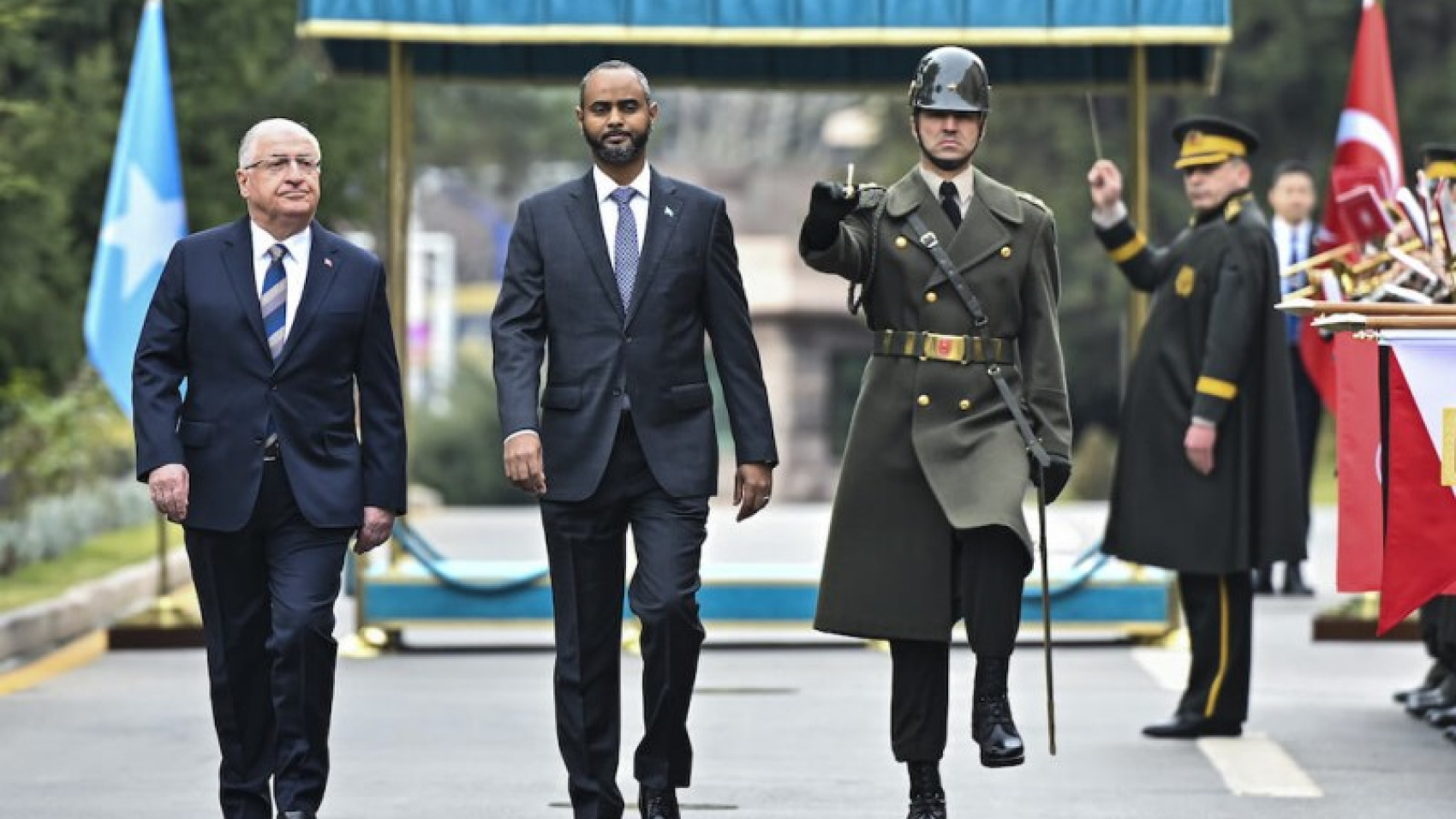Somalia’s membership in the East African Community (EAC) marks a pivotal step toward strengthening its position and contributing meaningfully to regional growth. As a Somali, I see this as more than just a strategic move; it’s an opportunity to reshape our collective future. But for this vision to fully materialize, we must also consider the significance of Ethiopia—an influential neighbor that has yet to join the EAC. Bringing Ethiopia into the fold could open doors to resolving regional tensions, from the longstanding aspirations of Ethiopia for sea access, particularly Somali seas. Here’s how Somalia and the EAC can seize this moment for lasting progress.
1. Economic Growth and Integration
The EAC’s single market and customs union are designed to enhance trade and investment among member states. Somalia’s strategic location along the Indian Ocean and its extensive coastline offer valuable trade routes and resources. By deepening its participation in EAC initiatives, Somalia can capitalize on these advantages, increasing trade volumes and attracting investment. Key sectors such as agriculture, fisheries, and energy stand to benefit from improved regional market access and infrastructure development.
Ethiopia’s potential membership would amplify these benefits. As one of the largest and most populous countries in East Africa, Ethiopia could contribute significantly to regional economic integration. Its inclusion would enhance trade routes and create new investment opportunities, benefiting both Ethiopia and its EAC neighbors, including Somalia.
2. Political Stability and Regional Cooperation
Being part of the EAC offers Somalia a robust platform for political cooperation and conflict resolution. The EAC’s focus on regional stability and collective security can aid Somalia in addressing internal and cross-border challenges. Enhanced collaboration with neighboring countries through the EAC supports Somalia’s efforts to manage security threats and political instability. The EAC framework provides mechanisms for dialogue and support that are crucial for Somalia’s continued progress.
Ethiopia’s membership would further bolster these efforts. As a significant regional actor, Ethiopia’s participation in the EAC could help address regional tensions and foster cooperative solutions. This inclusion would provide a structured platform for Ethiopia and Somalia to engage in dialogue and resolve disputes, including the contentious issues surrounding Ethiopia’s aspirations for sea access, especially Somali seas. Ethiopia could benefit greatly from peaceful neighbors, particularly Somalia, if it retracts the illegal MoU with the northern part of Somalia.
3. Strategic Maritime Advantages
Somalia’s strategic maritime position, with access to major global shipping lanes, aligns with the EAC’s goals of improving regional trade and security. As an EAC member, Somalia benefits from collective efforts to enhance maritime infrastructure and security.
The potential inclusion of Ethiopia in the EAC could play a crucial role in resolving maritime disputes. Ethiopia, due to its landlocked status, has a vested interest in accessing maritime routes and ports. By joining the EAC, Ethiopia could engage in collaborative maritime projects and dispute resolution processes. This cooperative approach would help clarify maritime boundaries, promote shared economic interests, reduce tensions, and foster mutual benefits for both Somalia and Ethiopia.
4. Enhancing Regional Unity
Somalia’s active participation in the EAC strengthens regional unity and cooperative efforts. The EAC’s mission to promote economic integration and social development aligns with Somalia’s goals for stability and prosperity. By engaging fully with EAC initiatives, Somalia contributes to regional projects aimed at improving living standards and fostering economic growth.
Ethiopia’s membership would further enhance regional unity. Its inclusion would reinforce collective efforts to address shared challenges and promote a more cohesive East African region. Ethiopia’s contributions could support collaborative development projects and strengthen ties among member states.
5. Addressing Development Challenges
Somalia faces development challenges such as poverty, infrastructure deficits, and unemployment. The EAC framework provides access to resources and development programs that could address these issues. Active engagement in EAC projects supports Somalia’s efforts to improve governance and accelerate development.
Ethiopia’s involvement in the EAC would expand the resources and expertise available within the community, enhancing collective efforts to tackle development challenges. Collaborative projects could address infrastructure needs, promote economic growth, and support sustainable development goals across the region.
Conclusion
My experience in European politics, especially from the perspective of building peace and development, will never lead me to entertain the idea of war and destruction between countries like Somalia and Ethiopia, which have shared a long history of neighboring relations well before the colonial era. It is far more important to give the people of East Africa the peace and prosperity they need. It is time to explore possibilities for all parties to benefit, bringing peace and prosperity to the region where there is no more hunger for the children of East Africa but instead hope and a good future. This can be achieved if all parties commit to it.
Somalia’s membership in the East African Community is a strategic asset that offers numerous opportunities for growth and collaboration. By maximizing its role within the EAC, Somalia can drive economic development, enhance regional stability, and fully utilize its maritime advantages. The potential inclusion of Ethiopia in the EAC would further strengthen the community, providing additional economic and political benefits. This expanded cooperation could play a critical role in resolving regional disputes and fostering a more integrated and prosperous East Africa’s future. All EAC countries, together with new applicant Ethiopia, should seek peace and prosperity for all East African citizens. It’s time we overcome wars, famine, corruption, and despair.



